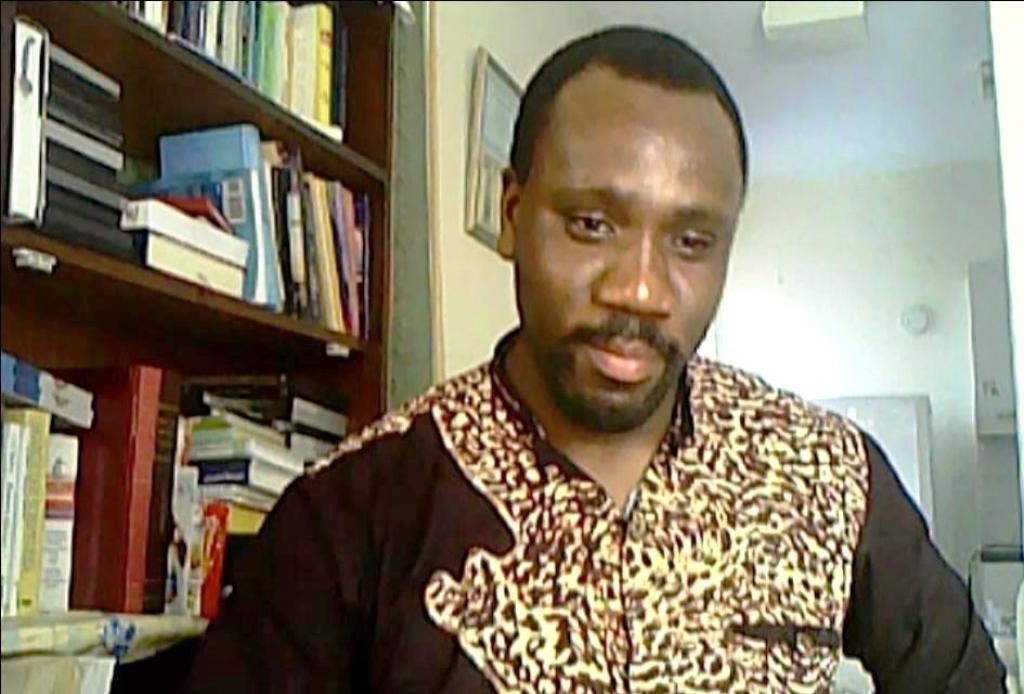WHY
SYSTEMS ENGINEERING?

1.
INTRODUCTION
Engineering is
one of the
largest and diverse careers with engineers working on products as
varied
as oil rigs, aeroplane, bridges, telecommunications systems, and
artificial
limbs as will as on process, water purification and refining. There is
a wide range of specialization within the industry such as mechanical,
electronics, software, and systems engineering. Within these
specialization
there is a variety of different functions such as design, research and
development and productions.

2.
SOME
BRANCHES OF ENGINEERING
Systems
Engineering is the study and practice of application of
science
for the control and use of power to the production of parts of machines
working together in a regular relation as a system. System engineering
comprises all engineering technologies and has application outside
engineering
as well.
Electronics
and Electrical
Engineering involves solving practical problems using
electrical
science. Electronics Engineering is concerned with the use of
electricity
for light-current applications like handling information, generally as
electrical or optical signals. Electronic engineers design,
manufacture,
operate and monitor computers, telecommunications, control systems,
such
as satellite tracking devices. Whiles Electrical Engineering is
concerned
with the applications and use of electricity as a source of energy for
heavy-current applications such as power generation and power supply.
Electrical
Engineers are involved in the production and distributions of the
electricity
to homes, factories, schools, etc., and the manufacture of equipment
and
transmission system to provide power. Their work is concerned with the
design, manufacture, installation and maintenance of electrical
equipment
on trains, aircraft, ships and road vehicles. In practice, there is a
considerable
overlap between the fields so that many engineers needs a working
knowledge
of both disciples.
Mechanical
Engineering
is the largest area of engineering and is concerned with the design,
development,
manufacture, operation and maintenance of machinery of all kinds from
the
largest power station space craft and car plant to the most delicate
mechanisms
required for scientific instruments, heart valves and micro-surgery.
Computer
Science is the systematic study and knowledge of
electronic
devices for storing, retrieving information, analyse and performing
calculations.
To research, design, manufacture, install and service such complex
electronic
devices requires some engineers and computer scientist;
Microelectronics
engineers
research, design, develop, fabricate and test new electronic components
and circuitry.
Hardware
engineers
create and produce new system architectures and equipment using
microelectronics
devices and other components.
Programmers
or Software
Engineer write, test, maintain and update computer programs and
packages
for electronics systems. They also develop new computing languages.
Software
engineer also
design large systems using library routines.
System
Analysts assess
and specify the computing requirements of an organization and plan
systems
to ensure that work is undertaken more effectively.
Application
Programmer
write programs to enable computer systems to undertake specific tasks.
Computer
Service Technicians
install, service and repair computer hardware and software systems.
3.
AUTOMATIC
CONTROL SYSTEMS ENGINEERING
Most of
engineering courses
have only a single disciple and systems are becoming more and more
complex.
For example engineering systems usually now have a mixture of
electrical,
electronic and mechanical components and may include chemical process
as
well. So System Engineering brings Computer, Control, Electronics,
Electrical
and Mechanical Systems together as Automatic Control Systems
Engineering
.
The role of the
Automatic
Control Systems Engineering department is to study, research and
develop
engineering systems. It provide student with the tools and skills
needed
to identify requirements, specify solutions, and to analyse, design,
implement
and validate reliable products safely and responsibly. Student are
trained
to analyse how complex systems fit together and interact, and have
sufficient
knowledge of each engineering technology within it to make the system
work.

4.
COURSE
STRUCTURE
There are five
BEng/MEng
courses available within the framework of Systems Engineering. Each one
is based around a common core together with modules from other
departments
relevant to choice of degree.
Computer
Systems Engineering
is designed for student to develop an understanding of the use of
computers,
both in design and programming, within complex engineering systems and
in many diverse applications. This distinguishes the course from
standard
Computer Science course.
Control
Systems Engineering
is intended for students who wish to gain a deep understanding of
feedback
control systems and their applications. The course covers advanced
control
system design technologies as well as standard approaches to systems
engineering
and computer control. Students do some courses from Electrical,
Electronics
and Mechanical departments.
Electronic
Systems Engineering
course is intended for students who wish to approach the analysis and
design
of sophisticated electronic systems from a systems philosophy rather
than
from individual component level. This new strategy has lead to an
increasing
demand for electronic, control and systems engineers from the
telecommunications
and electronics industry. This course provides you with a blend of
traditional
electrical and electronics coupled with a core of systems engineering
forming
an excellent preparation for careers in these areas.
Mechanical
Systems Engineering
is intended for students who wish to gain knowledge, skills and
understanding
of traditional Mechanical Engineering (subjects like applied mechanics,
thermodynamics and fluid mechanics) combine with Systems Engineering.
The
course embraces concepts such as advanced manufacturing systems, active
control of vibration and robotics.
Medical
Systems Engineering
course is to provide students with the core skills of Systems
Engineering
and specialist skills in applications of engineering related to medical
diagnostic and treatment procedures. Student do some courses from
Electronics
Engineering and Medical Physics and Clinical Engineering departments.
The
skills imparted to graduates from the course will make them capable of
taking responsibility as Chartered Engineers for the creation,
enhancement
and maintenance of advanced modern engineering systems, and
particularly
those in medical applications.
WRITTEN
FOR COURSE WORK BY GODWIN EYRAM
KOFI AMPONSAH
